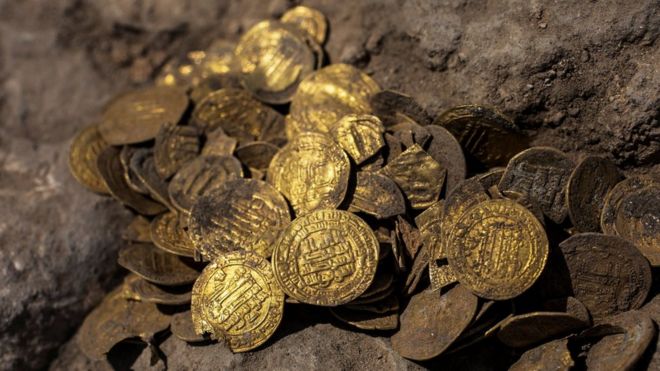425 gold coins dating back to early Islamic period have been found in central Israel. Youths volunteering at an archaeological dig have found the coins that had lain buried in a clay jar for 1,100 years.
BBC news reported that most of the money dates back to the early Islamic period, when the region was part of the Abbasid caliphate.
The coins weigh 845g (30oz). According to experts, the coins would have been worth a huge sum when they were buried. They would have been enough to buy a luxurious home in one of the caliphate’s cities.
The directors of the excavation, Liat Nadav-Ziv and Elie Haddad of the Israel Antiquities Authority are quoted to have said, “The person who buried this treasure 1,100 years ago must have expected to retrieve it, and even secured the vessel with a nail so that it would not move.” They felt finding gold coins in such a considerable quantity, is extremely rare.
Oz Cohen, the youth who discovered the hoard, was amazed. He said that when he excavated the soil he saw what looked like very thin leaves. But when he looked closely he found that those were gold coins.
Robert Kool, a coin expert, revealed that not only that the cache had gold dinars but 270 small gold cuttings also which are nothing but pieces of dinars cut to serve as “small change”.
Adding that one of the cuttings was a fragment of a gold solidus of the Byzantine Emperor Theophilos minted in Constantinople, Kool observed that it was rare material evidence of the continuous connections between the two rival empires during this period.

